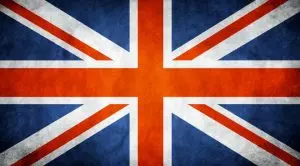
The UK gambling industry has grown enormously over the past decade but that has come at a price, as gambling addiction rates, too, seem to have been on the rise. Stories about people who have destroyed their lives and the lives of loved ones emerge regularly across media outlets to raise awareness that there still has so much more to be done by everyone involved in an industry that has entertainment as its primary goal, but that entertainment is oftentimes replaced by personal tragedies of different scope and intensity.
On a more positive note, it should be noted that there have been charities to have been working with problem gamblers and those close to them in order to help them treat their extreme wagering habits and prevent them from lapsing into these habits. GamCare has been one such important charity that has been helping people for more than two decades now.
In the following report, accompanied by a detailed infographic, Casino Guardian presents important trends related to the UK gambling industry and about those consuming its products. The article and its accompanying piece also detail GamCare’s work over the years based on information from the organization’s annual activity reports.

 There are between 350,000 and 430,000 problem gamblers in the United Kingdom, according to different studies on the matter produced over the past several years. These figures include both people with milder gambling problems and gambling addicts. And they show that the UK is having a problem with gambling it needs to rein properly and with extreme caution and care.
There are between 350,000 and 430,000 problem gamblers in the United Kingdom, according to different studies on the matter produced over the past several years. These figures include both people with milder gambling problems and gambling addicts. And they show that the UK is having a problem with gambling it needs to rein properly and with extreme caution and care.
Multiple stories have emerged over the past several years about people who have become gambling addicts and have thus destroyed their careers and non-professional aspirations, have resorted to criminal activity to feed their addiction, have betrayed friends and family, have become suicidal, or have eventually committed suicide pressured by shame and accumulating debts. And there have indeed been so many of these that they cannot and should not simply be dismissed as heavyweight anti-gambling propaganda at a time when the industry is thriving.
It is fair to say that extracting something positive from such a dark subject is a challenging task. However, it should be noted that there have been charities that have been working with people suffering from gambling addiction and with other suffering from the gambling addiction of a loved one.
Founded in 1997, GamCare is one such important charity that has been providing advice and support for both the prevention and treatment of problem gambling behavior and gambling addiction. Thousands of people have now reached out to the organization through its National Gambling Helpline, netline, and other related services.
The latest report by Casino Guardian focuses namely on GamCare’s work over the years at a time when the UK gambling industry is growing at a quick pace. Our team has collected important information about the nation’s gambling market, about UK gambling participation rates, and about the number and type of gamblers to have been consulted by GamCare as part of the organization’s continued effort to create a better image of the state of the industry and those involved in it.
The UK Gambling Industry: Most Important Facts and Figures
 According to the latest industry statistics released by the UK Gambling Commission, the nation’s gambling market was worth nearly £13.9 billion in terms of gross gambling yield generated in the period between October 2016-September 2017.
According to the latest industry statistics released by the UK Gambling Commission, the nation’s gambling market was worth nearly £13.9 billion in terms of gross gambling yield generated in the period between October 2016-September 2017.
The Gambling Act 2005 and its companion piece from 2014 aimed to curb the ill effects an unregulated market could have on its customers. The introduction of the first piece created a large and constantly growing regulated market, while the latter, even more thoroughly focused on the provision of remote gambling services, created the world’s largest regulated online gaming and betting market.
As a result from the regulation of the UK market and the ever-expanding interest in gaming and betting services, both at physical facilities and online, the nation’s industry has grown from £8.4 billion in 2008 to £13.9 billion in 2017. As for online gambling, that segment, too, has been expandind just as quickly and at just the same stable pace over the years since 2008, with online gross gambling yield rising from £2.5 billion in 2008 to £4.9 billion in 2017 to become the nation’s largest gambling sector.
In terms of retail gambling, there is a particular segment that has been making the headlines over the past years not only due to the massive gross gambling yield it has generated annually, but also do to the high level of addictiveness it carries. B2 gambling machines or fixed-odds betting terminals have turned into the UK gambling industry’s most heavily and negatively publicized segment of the industry.
The gaming devices, oftentimes dubbed “the crack cocaine of gambling”, represent the local industry’s second largest sector with gross gambling yield of £1.8 billion for the period between October 2016 and September 2017. However, that figure will drop significantly as the UK Government has announced recently that the maximum bet FOBTs accept would be reduced to £2 from £100 every 20 seconds. The decision came after the completion of British MPs triennial report on the state of the nation’s gambling industry and the subsequent consultation on the best approach to be taken in regard with the controversial devices.
The crackdown is finally set to be launched after years of pleads and urges from responsible gambling organizations, former gambling addicts, who had fallen victims to the machines, and other involved parties. It is estimated that bookmakers could lose up to £500 million as a result from the maximum bet reduction.
Gambling Participation Statistics
 The most recent gambling participation statistics by the UK Gambling Commission showed that 45% of all UK residents aged 16 or over participated in one form of gambling activity or another in the year to December 2017. That figure dropped slightly from 48% from a year earlier.
The most recent gambling participation statistics by the UK Gambling Commission showed that 45% of all UK residents aged 16 or over participated in one form of gambling activity or another in the year to December 2017. That figure dropped slightly from 48% from a year earlier.
According to the regulator, 18% of all people interviewed for the purposes of its report gambled online last year, up from 17% in 2016. Online gamblers were found to have held an average of 4 different accounts, up from 3 in 2016.
As for gambling on machines in betting shops, the rate stood at 1% and was maintained from 2016. Here it is important to note that while 1% might not seem too much, gamblers wagering money on betting machines usually spent large amounts due to the high speed of play the devices feature.
The UK Gambling Commission found that 0.8% of all UK residents identified themselves as problem gamblers, while another 3.9% were at-risk gamblers who were showing symptoms of problem gambling behavior, but were yet to develop addiction.
 A recent study conducted by measurement firm Ipsos Mori on behalf of the UK Gambling Commission has shown very concerning figures regarding the participation of underage residents in gambling activities. According to the report, 12% of UK residents aged between 11-16 gambled weekly in 2017. Of all gambling 11-16-year-olds, 0.9% or 25,000 were identified as problem gamblers, while another 1.3% were defined as at-risk gamblers.
A recent study conducted by measurement firm Ipsos Mori on behalf of the UK Gambling Commission has shown very concerning figures regarding the participation of underage residents in gambling activities. According to the report, 12% of UK residents aged between 11-16 gambled weekly in 2017. Of all gambling 11-16-year-olds, 0.9% or 25,000 were identified as problem gamblers, while another 1.3% were defined as at-risk gamblers.
Around 3% of all gambling children spent their own money to gamble online last year, and 7% used their parent’s online gambling accounts to wager money.
While 12% is an extremely concerning rate, it should be noted that the number of gambling children appears to have decreased since 2011 when the rate stood at 23%. Still, children seem to be overly exposed to gambling and are able to participate in gambling activities quite effortlessly.
GamCare’s Activity over the Years
 Established in 1997, GamCare has turned into the leading organization that provides important information, advice, and support to problem gamblers, gambling addicts, and those close to them. The organization’s annual reports have shown that more and more people with gambling-related problems have become comfortable to seek help to be treated or advised on how to prevent their problems from becoming more acute.
Established in 1997, GamCare has turned into the leading organization that provides important information, advice, and support to problem gamblers, gambling addicts, and those close to them. The organization’s annual reports have shown that more and more people with gambling-related problems have become comfortable to seek help to be treated or advised on how to prevent their problems from becoming more acute.
Casino Guardian has looked into GamCare’s activity during the past several years and has noticed several important trends, which we are to dwell more thoroughly upon in the next several paragraphs.
In the first place, as it could be seen in the accompanying infographic above, the number of calls answered by GamCare has grown almost incessantly in the period between 2012 and 2017. During the 2012/13 reported period, the organization answered a total of 32,733 calls, of which 17,068 were identified as target calls. Five years later, GamCare answered 43,637 calls, of which 29,417 were target ones. While the number of total calls answered had certain ups and downs over the past five years, the number of target calls answered grew at a stable pace.
In other words, the organization has clearly become a trusted counselor for a wider number of people affected by gambling in one way or another, and has been improving its service with every year passing.
Caller Profile
 In its annual reports, GamCare presents comprehensive information about the type of people that call for help and advice. Several trends should be noted based on these sections of the organization’s reports. First and foremost, gamblers represented the largest number of calls made to GamCare for each of the years the charity has presented a report. In 2016/17, they accounted for around 77% of all target calls made. In 2015/16 they represented 78% of all calls received.
In its annual reports, GamCare presents comprehensive information about the type of people that call for help and advice. Several trends should be noted based on these sections of the organization’s reports. First and foremost, gamblers represented the largest number of calls made to GamCare for each of the years the charity has presented a report. In 2016/17, they accounted for around 77% of all target calls made. In 2015/16 they represented 78% of all calls received.
Affected others, that is people close to the problem gamblers/gambling addicts, usually represent the second largest group of callers. Gamblers working in the industry, industry representatives, professionals, and other callers are also placed as caller categories in GamCare’s reports. It is important to note that calls from the industry itself seem to have never been made throughout the years, or if there were any such calls, they were certainly very few.
According to GamCare’s reports from over the years, male gamblers aged between 26-35 represent the largest group of people to be calling or reaching out to the organization in any other way. As to how most of the callers gamble, it can be seen that GamCare receives a nearly even number of calls from online and offline gamblers.
Increased Funding
 It is important to be understood by society, by the industry, by the government, and by everyone else involved that the work of initiatives like GamCare is important and should receive maximum support so that it is improved.
It is important to be understood by society, by the industry, by the government, and by everyone else involved that the work of initiatives like GamCare is important and should receive maximum support so that it is improved.
It was announced just recently that GamCare will have its funding increased. Leading industry charity GabmleAware has confirmed that GamCare projects will be granted £14 million over the next three years and that the money will be used for the implementation of support structure improvements.
GamCare will thus be able to develop further and maintain its National Gambling Helpline, develop different talking therapies for affected gamblers and their nearest, improve online access to its consumer support, and enhance its efficiency on treating and preventing gambling-related harm.
Reflections about Past and Future Regulatory Challenges and Changes
 While the UK Government geared up for the £2 cut of the maximum stake on FOBTs, the UK Gambling Commission launched its own crackdown on erring online gambling operators, slapping hefty fines for social responsibility failures on the likes of SkyBet, William Hill, 888 Holdings, and LeoVegas.
While the UK Government geared up for the £2 cut of the maximum stake on FOBTs, the UK Gambling Commission launched its own crackdown on erring online gambling operators, slapping hefty fines for social responsibility failures on the likes of SkyBet, William Hill, 888 Holdings, and LeoVegas.
Gambling’s most important purpose should be to act as an entertainment vehicle and everyone involved in that industry from its stakeholders to governments, regulators, and customers themselves should never forget this. Proper regulations and oversight could help with that, but it should be noted that the line between proper regulation and over-regulation could be very thin and could bring much trouble.
Proper regulations provides companies with important guidelines on how to conduct their activities, while over-regulation of the market could restrict regulated operators too much, make their operations less attractive to customers, and thus lose these same customers to the black market where there are no rules, regulations, and protection tools.
It is quite clear that the Gambling Commission is looking to somewhat re-regulate the local market in a manner that would be more socially responsible and more customer-friendly. However, it should bear in mind the risks of putting too much pressure.
Operators, on the other hand, should bear in mind that their licenses from the Commission are obligating them to be socially responsible and to protect consumers in the best possible way. The purpose of gambling is to provide the industry’s customers with funny experience, but that experience depends on the sensitivity of the human being. And the consequences from exploiting that sensitivity too much could be irreparable.
In other words, the industry, together with regulators and lawmakers, with charities working with gamblers, and with the society should find what is best for all involved parties and should keep in mind that they are all responsible for the current state of gambling in the country and those addicted to gambling.
- Author


